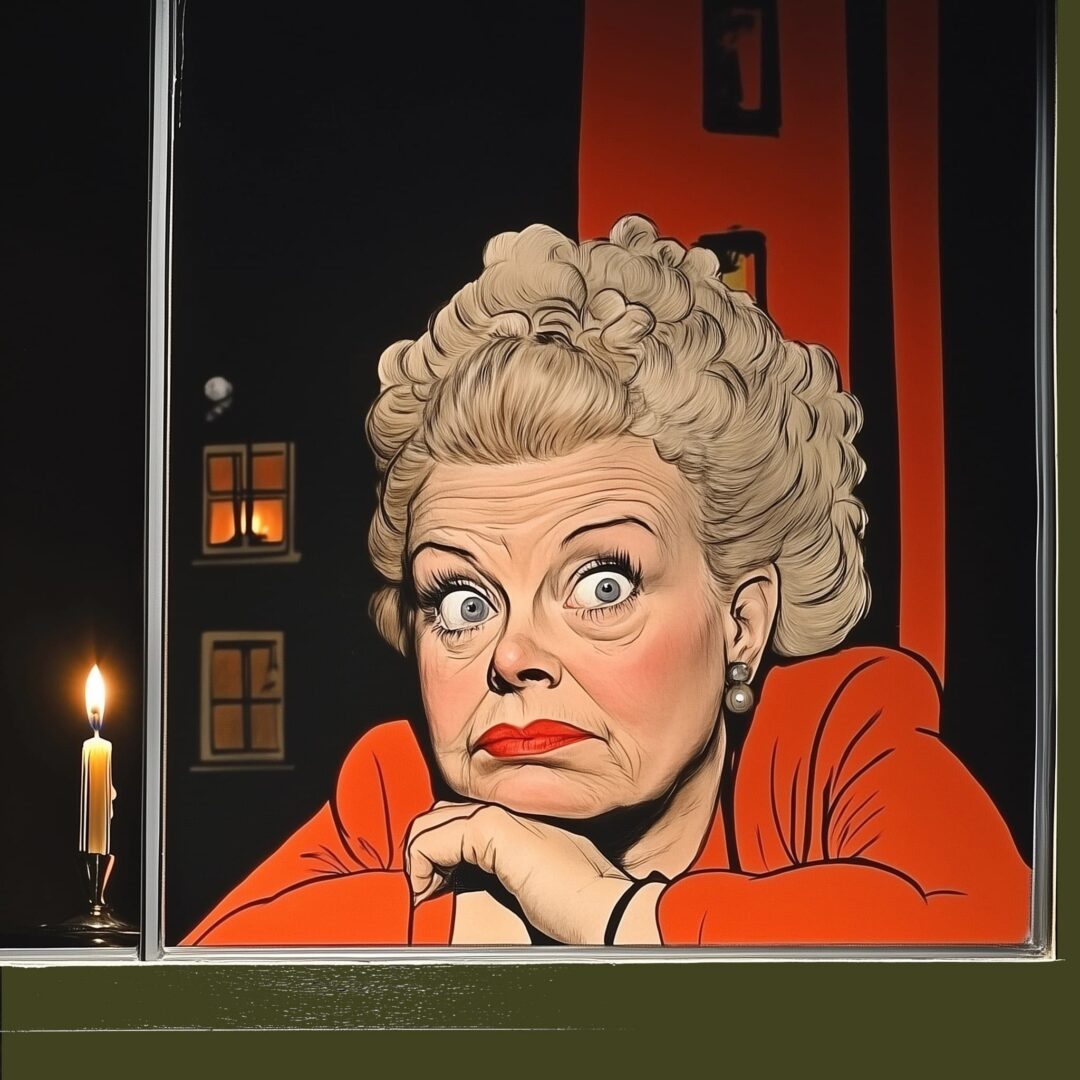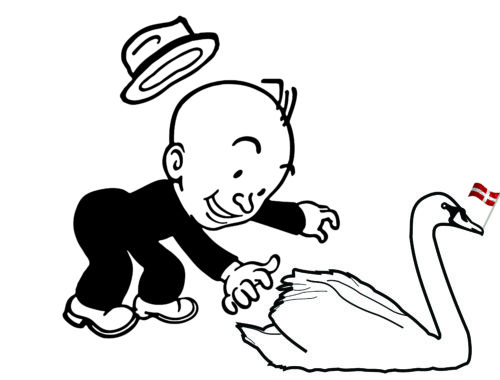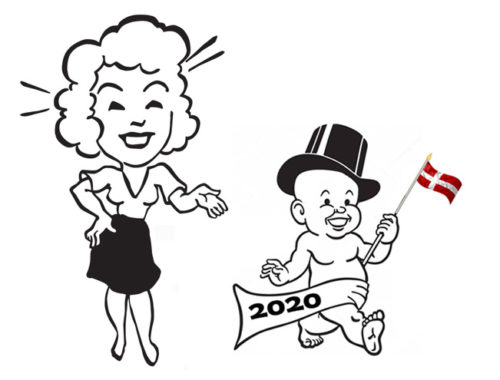I’ve referred to “The Danish Year” before on How to Live in Denmark. It’s a series of events that are simply expected to happen every year in Denmark, even if they aren’t formal holidays. This year I’m going to try to do a podcast every month about aspects of the Danish year, and how they fit into the overall context of where Denmark is coming from, and where it’s going.
Getting the present to remember the past is always tricky business. All over the world, there are statues set up so that people will always remember that great man so-and-so. Most of the time when you ask a local – who is that a statue of? they say, I have no idea. These great men in their time now spend centuries having birds stand on their head.
The past is past, and memories don’t always persist.
So it is with a lovely May tradition in Denmark, setting a candle in the window on the night of May 4. This is to commemorate the surrender of the Germans and the end of the Nazi occupation in 1945.
The Nazis imposed a blackout on Denmark to confuse the Allied air forces, so now that they were defeated, a candle in a window became a small symbol of rebellious light.
A rememberance ceremony, forgotten
I intend to participate every year on May 4, but I often forget, and to be honest I see very few candles in windows these days.
You’d have to be aged 85 or older now to remember the war, and Germany is one of Denmark’s greatest friends and Allies.
In addition, the elderly who do remember the occupation and the blackout generally do not live with their families in Denmark, families to whom they might pass on the tradition.
Old people in Denmark primarily live alone, and municipal employees come to their house once or twice a week to help with cleaning and make sure they take their medicine.
When they can no longer take care of themselves, they’re moved to a publicly-funded care home or a hospice, but this is generally only for the last few months of life.
“Living cooperatives” against loneliness
The elderly in Denmark are often lonely.
In India or the Middle East, older people usually live with their families; in the US, where I come from, they join “active adult” communities where they can golf and have affairs.
The Danish policy that encourages old people to remain in their homes as long as they can isolates them, in my opinion.
That’s why the Danish government, mindful of the fact that the average age in Denmark is advancing quickly, is encouraging the idea of bofæelleskab, or living cooperatives. That’s when a number of older people live together in a house or large apartment, a bit like university students, with a shared kitchen and laundry facilities.
This gives them a bit of company and, not coincidentally, frees up a lot of individual houses for younger families to move in when the old people move out.
You’re not the hip new designer or management trainee
Now, when I say old people, I’m talking about people over 67, which is the current Danish pension age. That will crawl up to age 70 for kids born today.
The problem for many people is that it’s hard to get a job after age 60. No one wants to hire you as a hip new designer or innovative pharma developer or management trainee.
Older people at the very top of the success ladder often spend this time on various Boards of Directors, leveraging their years of business experience.
Below that I meet a lot of older people who have tossed their career and their specialized educations aside and become office managers, or work in retail, or work in kindergartens.
They’re done climbing the career ladder and want something people-focused that is, and I quote, “something to do until I retire.”
A word to honor the old in Denmark
Old people don’t get any special respect in Danish culture.
I taught a group of Nepali students in Denmark once, and after the presentation in the Q&A period, they wanted to know if there were some special Danish word they could use to honor the elderly, an important part of their culture in Nepal.
But there’s no specific word in Denmark to honor the elderly. Especially these days, when the people who are old now are the former 1960s hippies who got rid of honorifics like Herr Hansen and Fru Jensen.
The elderly today in Denmark are called by their first names, just like everyone else.
Symphony concerts and saving trees
What is the role for them in Danish society?
Well, they volunteer a lot. I really enjoyed a recent trip to Horsens, where elderly volunteers run the huge old steam-driven machinery at the Museum of Industry. I would never know how to turn these big things on, but these old guys do.
Older volunteers also work in the print shop, where they still use moveable type – individual metal letters put in a template – to print cards and signs, and in the sample 1950s worker’s apartment, where I saw a woman of about 70 in an apron making traditional fiskefrikadelle, fried fish balls. Very authentic.
They can run for office – local politics in Denmark are often the domain of old people, who have the time to turn up for community meetings about fixing sidewalks or saving trees in the park.
Symphony concerts and ballets also attract an older audience – sometimes I sit in the cheap seats at the back and see nothing but white and grey heads in front of me.
But those are for people who are well-off and old.
If you’re poor and old, there are the local brown bars, or bodegas, where you can nurse a single beer for hours and watch TV or play pool or darts.
Angry on Facebook
If all else fails, there’s always yelling at each other on Facebook.
I’m surprised at how harsh the usually mild-mannered Danes are when they get behind a screen, and older Danes are some of the most vicious, with comments sometimes directed at me.
You’ll be pleased to hear that I should go back when I came from because nobody wants me here. That was a recent comment I received from Ole, which is definitely an old-man’s name.
Should I move to Denmark and retire?
All of the offline group activities for older people require a lot of individual initiative, however, which is why when people write to me and say they would like to move to Denmark to retire, I tell them it is a bad idea.
There’s not an easy way to develop a circle of friends, especially if you don’t speak Danish, or don’t have family here.
It’s hard enough for people who have lived here their whole lives to feel useful and wanted.
Only the lucky people get old
If that sounds sad, remember, it’s only the lucky people who get old.
Down the street from me in Copenhagen is the cemetery where members of the Danish Resistance are buried.
Many of them were teenagers when they conducted sabotage operations against the Nazi occupation; many were executed in the very last days of the war, when it must have been clear to the Germans that they had already lost.
These teenager Resistance fighters never had a chance to get old, so I will try to remember them with a candle in the window this year.




